Black Cohosh: 7 Science-Backed Benefits And Side Effects
With its soothing and fertility-boosting properties, this herb is a woman's best friend.
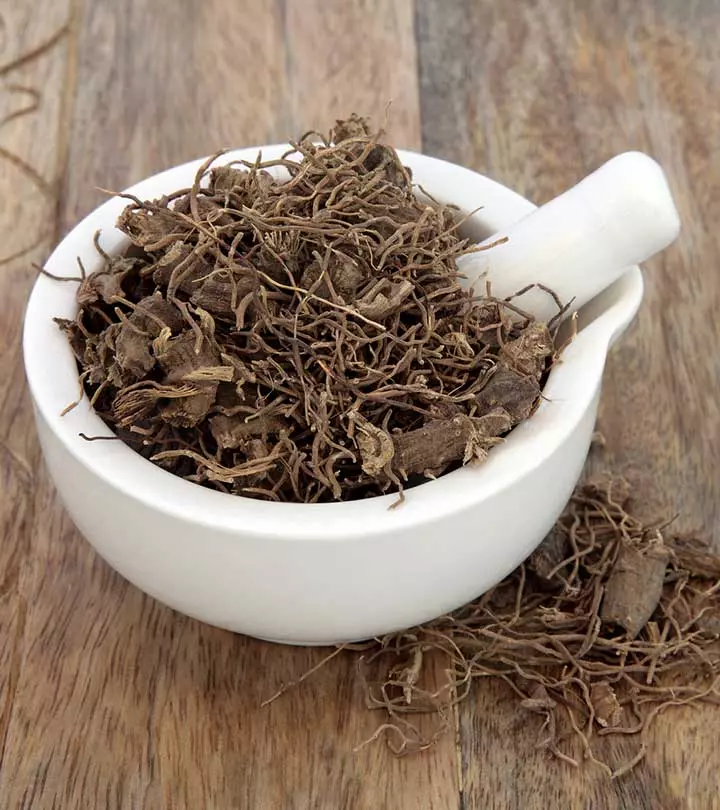
Image: iStock
Have you ever heard of a herb that can ease you into menopausei The time that marks the end of the monthly menstrual cycle at the age of 40-50s due to a decline in female reproductive hormones. ? Black cohosh is a flowering plant known for its beneficial effects during and after menopausei The time that marks the end of the monthly menstrual cycle at the age of 40-50s due to a decline in female reproductive hormones. . Native to eastern North America and a perennial herb of the buttercup family, it is also known as bugbane, rattleweed, and black snakeroot. Apparently, Native Americans have been using this herb for centuries to regularize the menstrual cycle and ease menopausei The time that marks the end of the monthly menstrual cycle at the age of 40-50s due to a decline in female reproductive hormones. and childbirth.In this article, we shall understand how science and studies back these black cohosh benefits and if there are any potential risks involved as well.

 Know Your Ingredient: Black Cohosh
Know Your Ingredient: Black CohoshWhat Is It?
A perennial flowering plant used as a dietary supplement.
What Are Its Benefits?
Reduces hot flashes, promotes fertility, decreases uterine fibroids, and improves sleep.
Who Can Use It?
Adults.
How Often
20 to 120 mg daily.
Caution
Consult a doctor in case of long-term use as it can cause hormonal changes, nausea, digestive dysfunctions, skin rashes, breast enlargement, liver damage, and anemia.
In This Article
What Is Black Cohosh?
Black cohosh, scientifically known as Actaea racemose or Cimicifuga racemosa, is a perennial herb primarily used to treat menopausei The time that marks the end of the monthly menstrual cycle at the age of 40-50s due to a decline in female reproductive hormones. symptoms (1). Native Americans traditionally used black cohosh roots and flowers to treat menopausei The time that marks the end of the monthly menstrual cycle at the age of 40-50s due to a decline in female reproductive hormones. symptoms. Today, it is used in popular women’s health supplements to help regulate the monthly cycle, ease menopause discomforts, and fertility concerns (2).
Most women have to deal with hot flashes, excessive sweating, headaches, anxiety, mood swings, and vaginal dryness for about 3-4 years during their menopausei The time that marks the end of the monthly menstrual cycle at the age of 40-50s due to a decline in female reproductive hormones. . Black cohosh being a phytoestrogen seems to act similar to the hormone estrogen and has pain-relieving effects that help alleviate these symptoms (2),(3). Going further, let’s understand these beneficial effects of black cohosh in detail.
 Trivia
TriviaKey Takeaways
- Scientifically called Actaea racemose or Cimicifuga racemosa, black cohosh is a perennial herb mainly used to treat menopausei The time that marks the end of the monthly menstrual cycle at the age of 40-50s due to a decline in female reproductive hormones. symptoms.
- It may also enhance fertility and help you with uterine fibroidsi They are growths made of uterine muscles, which are non-cancerous and appear in the uterus during the child-bearing years of life. .
- However, it might cause liver damage and anemiai A condition in which blood doesn't have enough red blood cells, which results in lack of hemoglobin and oxygen, and causes fatigue. .
Health Benefits Of Black Cohosh
Black cohosh has several potential benefits when it comes to hormonal balance and women’s health. However, apart from being a popular natural remedy for menstrual cramps and menopausal symptoms, all other benefits need more research to be established.
- May Help With Menopause

The primary benefit of black cohosh is its alleviating effects of menopausal pain and other symptoms. This is also strongly backed by many studies (4).
A study on menopausal women reported a significant reduction in hot flashes on a daily supplementation of 20 mg of black cohosh for 8 weeks (5). Another review of studies on menopausal women concluded a 26% reduction in hot flashes and night sweats on black cohosh supplementation in combination with other substances like St John’s wort, red clover flower extract, ginseng, soy extract, vitamin D, primrose oil, calcium, etc (6).
A blogger shared her experience of trying black cohosh for hot flashes. She explained, “I started taking Black Cohosh for hot flushes (flashes in the USA) about four months ago. It seems to have really worked for me, I rarely get them anymore and if/when I do, the symptoms are nowhere near as severe as they used to be (i).” Therefore, it is one of the effective home remedies for hot flashes.
Black cohosh may provide pain-relief effects by binding to the body’s opioid receptors (7). Therefore it might be effective in reducing body pain and muscle aches during and after menopausei The time that marks the end of the monthly menstrual cycle at the age of 40-50s due to a decline in female reproductive hormones. .
 Trivia
Trivia- May Help Improve Fertility
Although there’s not much evidence to support this, black cohosh may help improve your fertility. Especially for women with PCOS, black cohosh seems to improve the efficacy of the fertility drug Clomid (clomiphene citrate) increasing their chances to conceive. A few human studies suggest an improvement in ovulationi The process when a mature egg is released from the ovary into the fallopian tubes during the monthly menstrual cycle. and chances of conception in women struggling with infertility on supplementation of black cohosh alongside Clomid (8), (9). Although, more research is needed to confirm this effect.
- May Help With Uterine Fibroids
Along with helping regulate your menstrual cycle and improving your chances of conceiving, black cohosh might also help improve the conditions of uterine fibroidsi They are growths made of uterine muscles, which are non-cancerous and appear in the uterus during the child-bearing years of life. . A 3-month study on postmenopausal women who took 40 mg of black cohosh daily as an alternative medicine, reported a 30% decrease in the size of their uterine fibroidsi They are growths made of uterine muscles, which are non-cancerous and appear in the uterus during the child-bearing years of life. (12).
- Might Help Decrease The Risks Of Cancer
Studies show that black cohosh may help decrease the risks of breast cancer
(13). This is interesting since black cohosh behaves similar to the hormone estrogen (which may potentially increase your risk of breast cancer). Few test-tube studies also suggest that black cohosh may help restrict the spread of cancerous cells (14). Further research is warranted to establish the same.
- May Help Improve Mental Health

According to a review of studies on the effects of herbal supplementation in menopausal women, black cohosh might help menopausal women deal with mental health concerns better. They reported significant improvements in their psychological symptoms (15). However, more research is needed to confirm the same.
- May Help You Sleep Better
Black cohosh supplementation may help improve the duration and quality of sleep in menopausal women (16). As per a study, black cohosh in combination with other compounds like ginger, zinc, hyaluronic acid, and chaste berry might help improve hot flashes associated with anxiety and insomnia (17). However, it is not clear whether it is only because of black cohosh or any of the other ingredients involved.
- May Aid Weight Loss

Women nearing menopausei The time that marks the end of the monthly menstrual cycle at the age of 40-50s due to a decline in female reproductive hormones. tend to gain weight with a natural decrease in their estrogen levels. Black cohosh, with its estrogen-like effects, may have a slightly beneficial effect in managing and maintaining their weight (18). However, further human studies are needed to establish this. However, including estrogen-rich foods in their diet to balance their estrogen levels is a good idea.
People should exercise caution when considering or using black cohosh supplements. Studies on the risks of using it are limited even if numerous side effects have been associated with it.
 Did You Know?
Did You Know?Dosage And How To Take Black Cohosh?
Black cohosh roots and underground stems are commonly prepared and sold as capsules, ground powder, or liquid extracts. While there are no fixed dosage recommendations, they may vary between 20-120 mg based on different brands and varying health concerns (19).
It is advisable to start with a lower dose, around 20 mg, and gradually increase it while monitoring for any side effects. This gradual approach can help minimize the risk of adverse reactions. To maintain consistent blood levels, take black cohosh at the same time each day.
Additionally, black cohosh is used as an herbal supplement in combination with red clover, soy isoflavones, St. John’s wort, and chaste berry (20), (21), (22), (23).
Since black cohosh seems to have potential effects on your hormone balance, you might experience changes in your menstrual cycle when you stop taking it. You should consult your doctor for any such concerns.
As the Food and Drug Administration (FDA) does not regulate supplements, the quality, strength, and amount of active ingredients in the product may vary from brand to brand. You should hence look for black cohosh supplements tested and approved by third-party testing organizations like United States Pharmacopeia (USP), NSF International, and ConsumerLab.
Some health professionals claim you should not take black cohosh for longer than 6 months to 1 year because of its potential long-term risks (19). Let’s have a detailed understanding below.
Side Effects Of Black Cohosh

Black cohosh has some potentially mild side effects. They may include nausea, digestive issues, infection, skin rashes, muscle pain, breast pain or enlargement, and bleeding or spotting outside your regular menstrual cycle (19). A long-term intake of black cohosh could lead to a few of the more pronounced risks discussed below.
- Might Lead To Liver Damage
Long-term use of black cohosh may lead to severe liver damage. In case you are having pre-existing liver conditions or are taking any medications or supplements for the same, you should avoid taking black cohosh (19).
- Might Lead To Anemia
According to an animal study, high doses of black cohosh intake might be related to red blood cell damage, resulting in anemiai A condition in which blood doesn't have enough red blood cells, which results in lack of hemoglobin and oxygen, and causes fatigue. . Further research is needed to confirm the same for humans (24).
- May Worsen Prior Health Concerns
People with certain previous health concerns might be at a greater risk of developing complications on using black cohosh. Because of its blood-thinning and hormonal effects, black cohosh might aggravate certain health issues in people with prior hormonal replacement therapy, breast or uterine cancers, endometriosisi A disorder in which the endometrium tissue lining the uterus, which normally lies inside the uterus, grows outside the uterus. , liver disease, etc. (25).
- May Have Drug Interactions
There are few medications that might increase the chances of complications and adverse drug interactions adding to the potential side effects of black cohosh (26).
As black cohosh preparations are not regulated by the FDA, there is also a chance that products may contain other botanical or chemical ingredients that could cause harm.
- May Trigger Allergies

Some people might have certain allergic reactions to black cohosh. The herb may also contain small levels of salicylic acid, the active component in aspirin (27). People with aspirin intolerance or allergies should avoid it.
Always consult your doctor before taking black cohosh and take it in the recommended dosage. An overdose of black cohosh may cause dizziness, an upset stomach, and vomiting (1). However, these symptoms occur less frequently.
Scroll to the next section to know how much it costs.
What Is The Price Of Black Cohosh?
The price of black cohosh can vary depending on its form and brand. Generally, you can find black cohosh supplements in the range of $5 to $25 or more for a bottle. Keep in mind that the cost may also depend on the quantity of capsules or the specific formulation, such as capsules, tinctures, or teas. Check with local stores or online retailers for the most current pricing information.
Infographic: Health Benefits And Risks Of Black Cohosh
Navigating hormonal health can be challenging for women. However, herbal remedies, like black cohosh, have emerged as a popular way to deal with menopause symptoms and even reproductive issues. The infographic below explores the top benefits and risks of using black cohosh. Take a look at it to know all the necessary facts to make an informed decision.

Illustration: StyleCraze Design Team
To Sum Up
Black cohosh is a perennial plant known for its remedial effects on women’s health. With its estrogen-like properties, it is used in modern health supplements for women to ease menstrual discomfort and treat menopausal symptoms. Though it has been in use traditionally as a herbal medicine, it is not regulated by the FDC, and hence should not be taken in large doses without consulting a health practitioner.
Frequently Asked Questions
Does black cohosh give you energy?
Yes, black cohosh may help reduce the fatigue experienced by women going through menopausei The time that marks the end of the monthly menstrual cycle at the age of 40-50s due to a decline in female reproductive hormones. (28).
Does black cohosh cause water retention?
Yes, some people may experience water retention as a side effect of using black cohosh (29).
Is black cohosh anti-inflammatory?
Yes, black cohosh contains saponins which may play a vital role in inflammatory pathways of neurodegenerative diseases like Alzheimer’s disease (30).
Illustration: Health Benefits Of Black Cohosh And Associated Risks
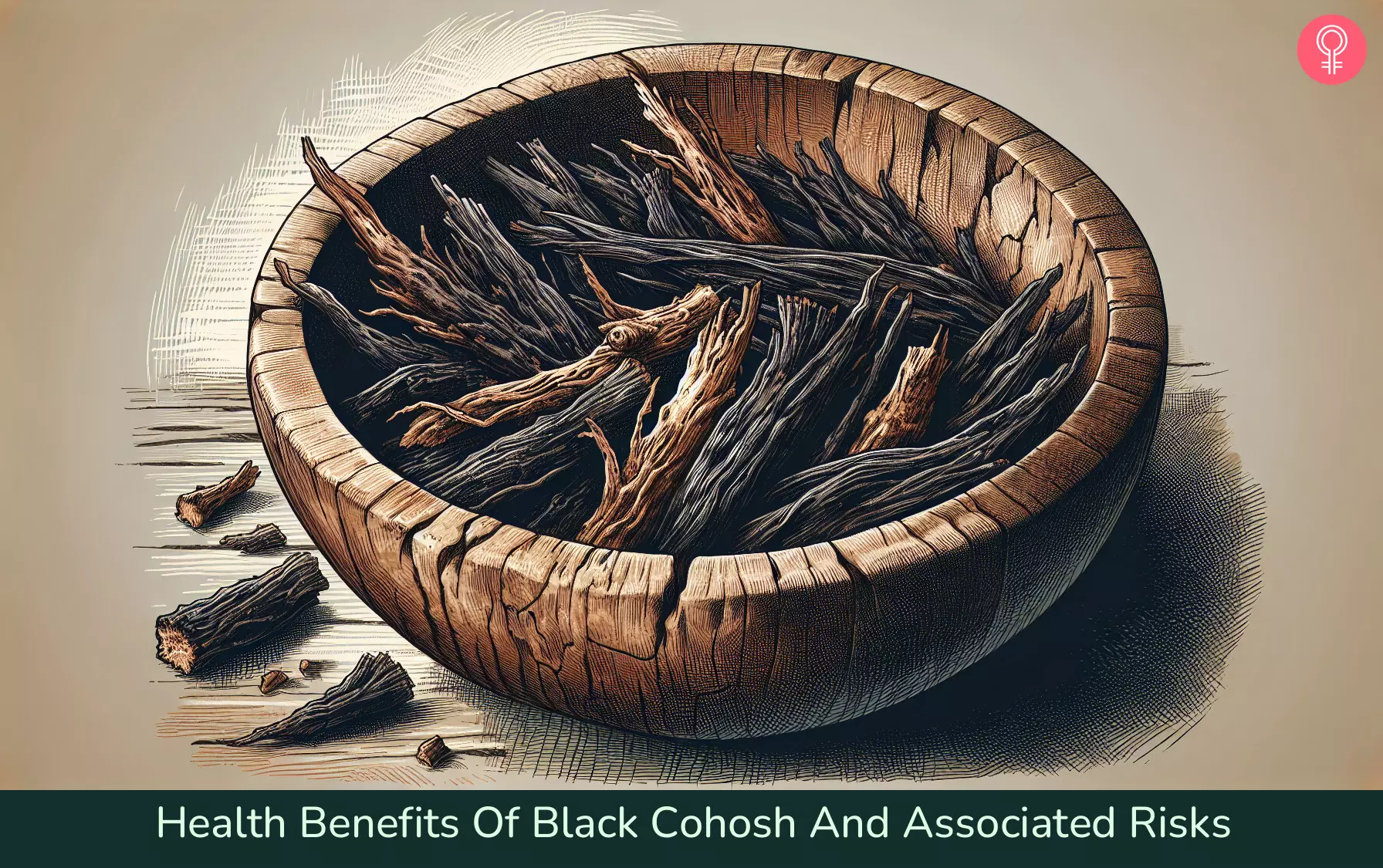
Image: Dall·E/StyleCraze Design Team
Learn about the amazing benefits of black cohosh for women’s health and wellness. Discover how it can help with menopause, PMS, and more.
Personal Experience: Source
StyleCraze's articles are interwoven with authentic personal narratives that provide depth and resonance to our content. Below are the sources of the personal accounts referenced in this article.
i. Black Cohoshhttps://naturalliving.livejournal.com/6371176.html
References
Articles on StyleCraze are backed by verified information from peer-reviewed and academic research papers, reputed organizations, research institutions, and medical associations to ensure accuracy and relevance. Read our editorial policy to learn more.
- Black Cohosh – StatPearls – NCBI Bookshelf
https://www.ncbi.nlm.nih.gov/books/NBK470187/ - Black cohosh: efficacy safety and use in clinical and preclinical applications
https://pubmed.ncbi.nlm.nih.gov/11347288/ - Current Treatment Options: Headache Related to Menopause-Diagnosis and Management
https://pubmed.ncbi.nlm.nih.gov/29508091/ - Effect of CIMicifuga racemosa on metaBOLIC parameters in women with menopausal symptoms: a retrospective observational study (CIMBOLIC)
https://www.ncbi.nlm.nih.gov/pubmed/31734757 - A comparative study on the effect of ”black cohosh” and ”evening primrose oil” on menopausal hot flashes
https://www.ncbi.nlm.nih.gov/pubmed/29619387 - Efficacy of black cohosh-containing preparations on menopausal symptoms: a meta-analysis – Database of Abstracts of Reviews of Effects (DARE): Quality-assessed Reviews – NCBI Bookshelf
https://www.ncbi.nlm.nih.gov/books/NBK79338/ - Black Cohosh has Central Opioid Activity in Postmenopausal Women: Evidence from Naloxone Blockade and PET Neuroimaging Studies
https://www.ncbi.nlm.nih.gov/pmc/articles/PMC2915573/ - Supplementation of clomiphene citrate cycles with Cimicifuga racemosa or ethinyl oestradiol–a randomized trial
https://www.ncbi.nlm.nih.gov/pubmed/19909590 - Adding phytoestrogens to clomiphene induction in unexplained infertility patients–a randomized trial
https://www.ncbi.nlm.nih.gov/pubmed/18413068 - Adding the phytoestrogen Cimicifugae Racemosae to clomiphene induction cycles with timed intercourse in polycystic ovary syndrome improves cycle outcomes and pregnancy rates – a randomized trial
https://www.ncbi.nlm.nih.gov/pubmed/24592984 - Role of phyto-oestrogens in ovulation induction in women with polycystic ovarian syndrome
https://www.ncbi.nlm.nih.gov/pubmed/23347605 - Effect of Isopropanolic Cimicifuga racemosa Extract on Uterine Fibroids in Comparison with Tibolone among Patients of a Recent Randomized Double Blind Parallel-Controlled Study in Chinese Women with Menopausal Symptoms
https://www.ncbi.nlm.nih.gov/pubmed/24719645 - Black cohosh and breast cancer: a systematic review
https://www.ncbi.nlm.nih.gov/pubmed/23439657 - Chemical Constituents from Cimicifuga dahurica and Their Anti-Proliferative Effects on MCF-7 Breast Cancer Cells
https://www.ncbi.nlm.nih.gov/pubmed/29734650 - The efficacy of herbal medicines on anxiety and depression in peri- and postmenopausal women: A systematic review and meta-analysis
https://www.ncbi.nlm.nih.gov/pubmed/31630610 - Black cohosh improves objective sleep in postmenopausal women with sleep disturbance
https://www.ncbi.nlm.nih.gov/pubmed/26000551 - [Evaluation of the efficacy of a new nutraceutical product in the treatment of postmenopausal symptoms]
https://www.ncbi.nlm.nih.gov/pubmed/26788874 - Complementary Medicine Therapies That May Assist With Weight Loss: A Narrative Review
https://www.ncbi.nlm.nih.gov/pubmed/31367198 - Black Cohosh – Health Professional Fact Sheet
https://ods.od.nih.gov/factsheets/BlackCohosh-HealthProfessional/ - Safety and efficacy of black cohosh and red clover for the management of vasomotor symptoms: a randomized controlled trial
https://www.ncbi.nlm.nih.gov/pubmed/19609225 - Vaginal endometrial and reproductive hormone findings: randomized placebo-controlled trial of black cohosh multibotanical herbs and dietary soy for vasomotor symptoms: the Herbal Alternatives for Menopause (HALT) Study
https://www.ncbi.nlm.nih.gov/pubmed/18257142 - Black cohosh and St. John\’s wort (GYNO-Plus) for climacteric symptoms
https://www.ncbi.nlm.nih.gov/pubmed/17461529 - Efficacy of Cimicifuga racemosa Hypericum perforatum and Agnus castus in the treatment of climacteric complaints: a systematic review
https://www.ncbi.nlm.nih.gov/pubmed/22385322 - Black cohosh extracts and powders induce micronuclei a biomarker of genetic damage in human cells
https://www.ncbi.nlm.nih.gov/pubmed/29668046 - Herb-Drug Interactions: What the Science Says | NCCIH
https://www.nccih.nih.gov/health/providers/digest/herb-drug-interactions-science - Analysis of spontaneous adverse drug reactions to echinacea valerian black cohosh and ginkgo in Australia from 2000 to 2015
https://pubmed.ncbi.nlm.nih.gov/31113761/
- Black Cohosh (Cimicifuga Racemosa) as Treatment of Menopause-Related Symptoms: A Mini Review
https://juniperpublishers.com/ttsr/pdf/TTSR.MS.ID.555611.pdf - Black Cohosh and Climacteric Symptoms: Growing Knowledge about the Efficacy and Safety
https://journals.sagepub.com/doi/pdf/10.1177/1934578X0700201013 - Coagulation activation and fluid retention associated with the use of black cohosh: a case study
https://pubmed.ncbi.nlm.nih.gov/19657787/#:~:text=However%2C%20there%20are%20some%20recent,the%20use%20of%20black%20cohosh. - Black Cohosh: Insights into its Mechanism(s) of Action
https://www.ncbi.nlm.nih.gov/pmc/articles/PMC3046019/
Read full bio of Mayuri Aavula
Read full bio of Varsha Patnaik
Read full bio of Ravi Teja Tadimalla
Read full bio of Payal Karnik





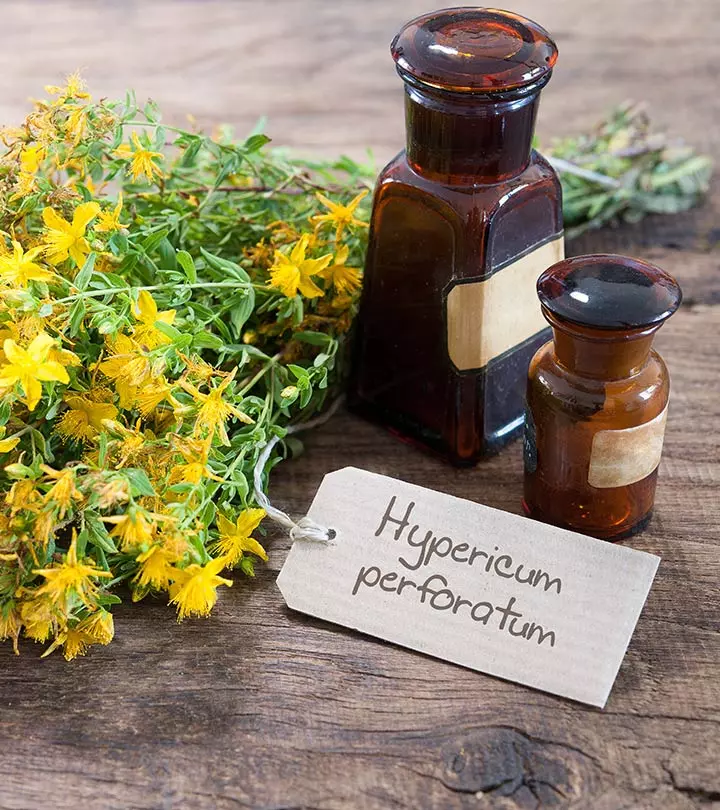
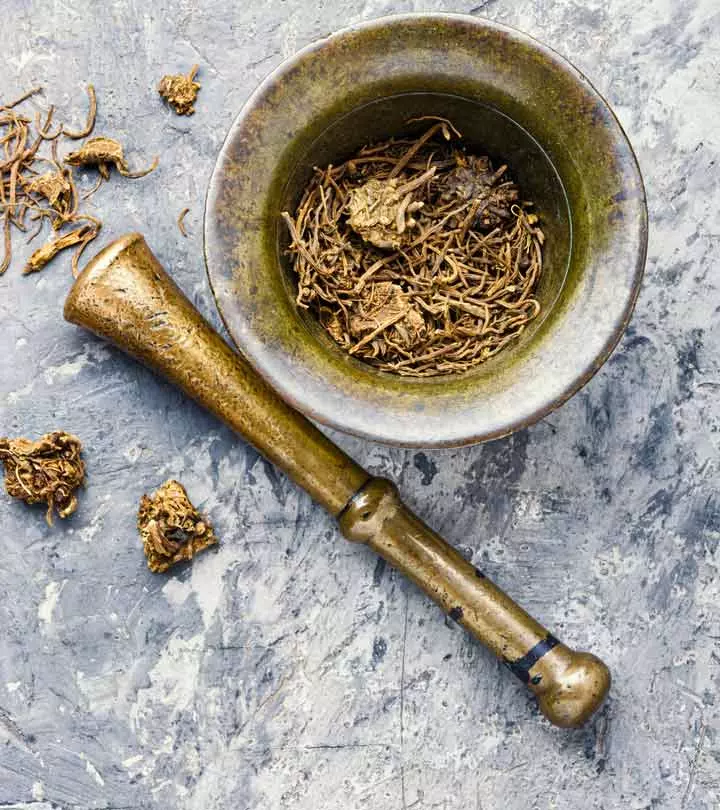

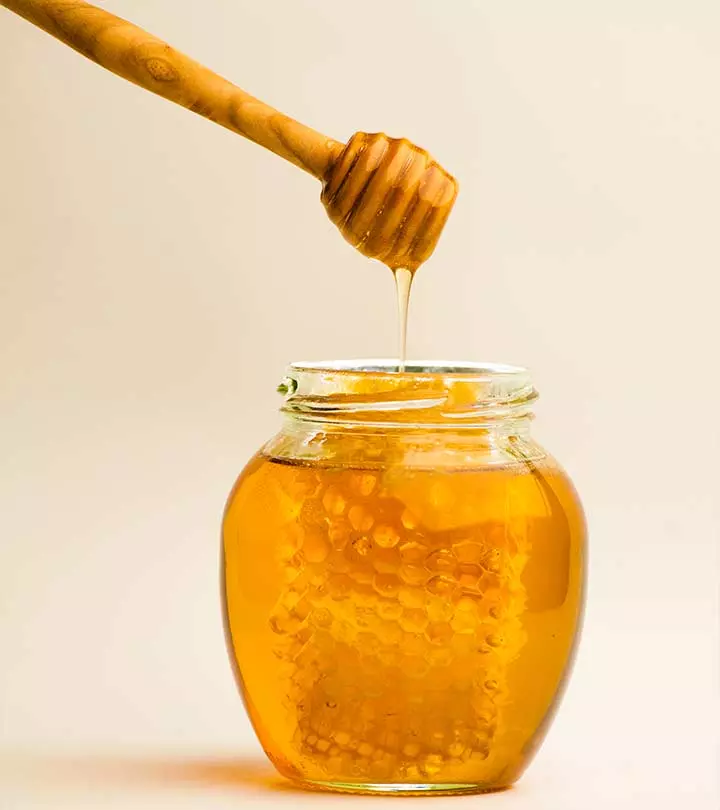
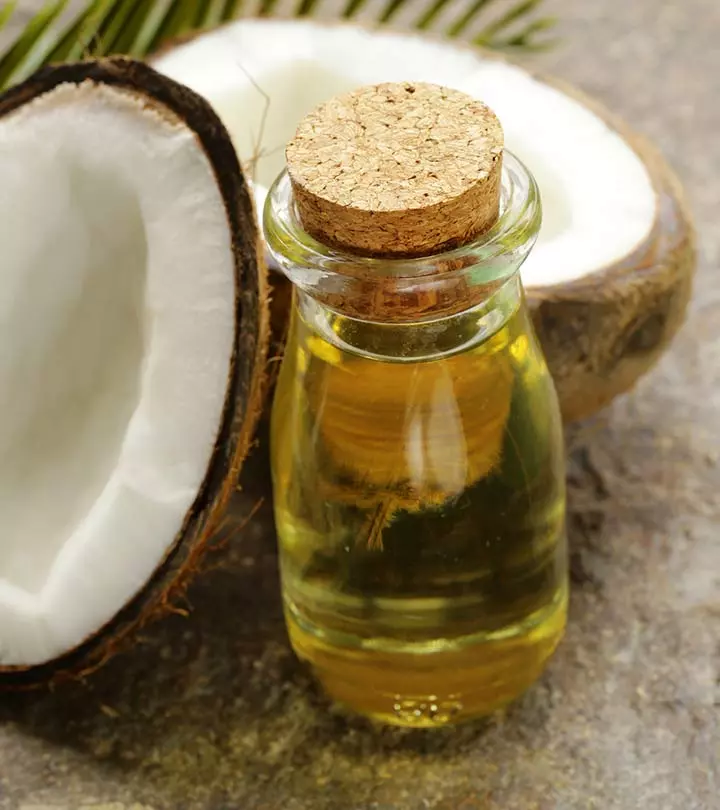
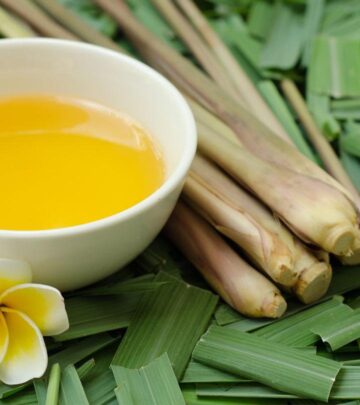
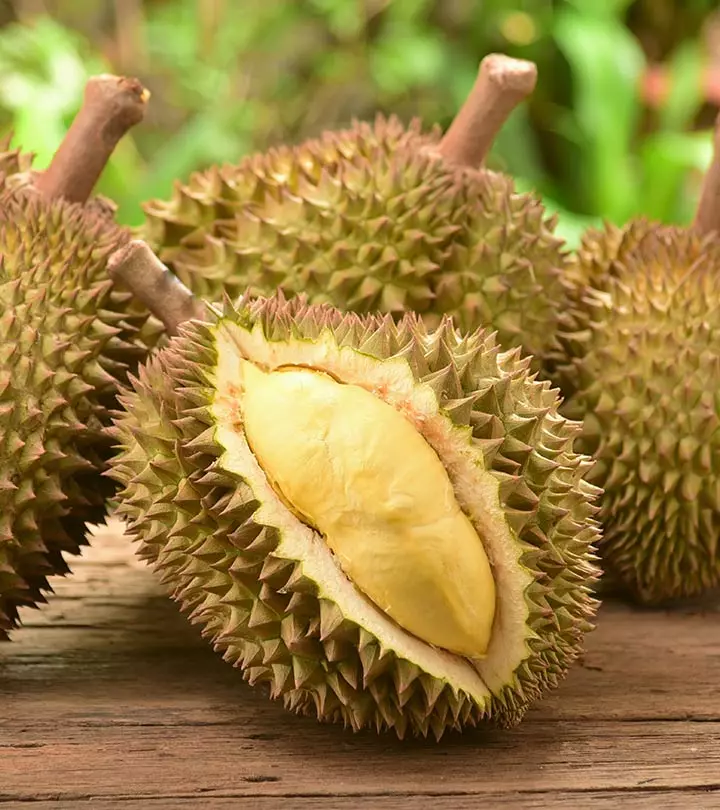
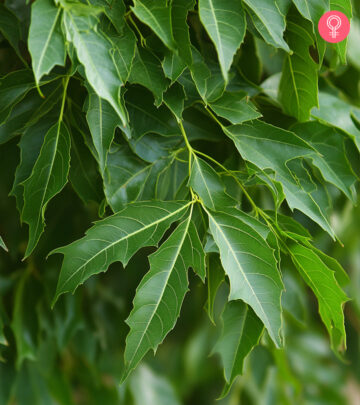
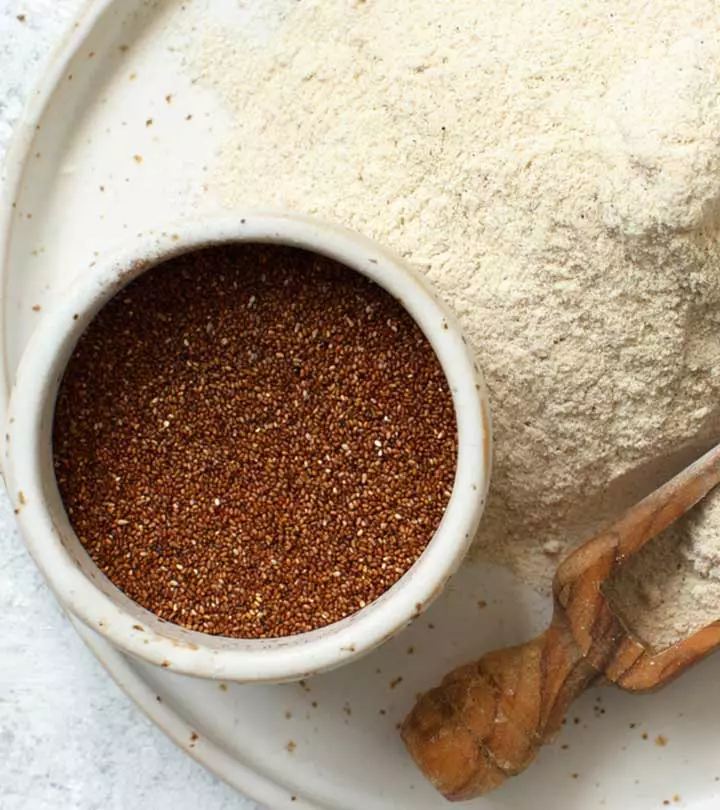
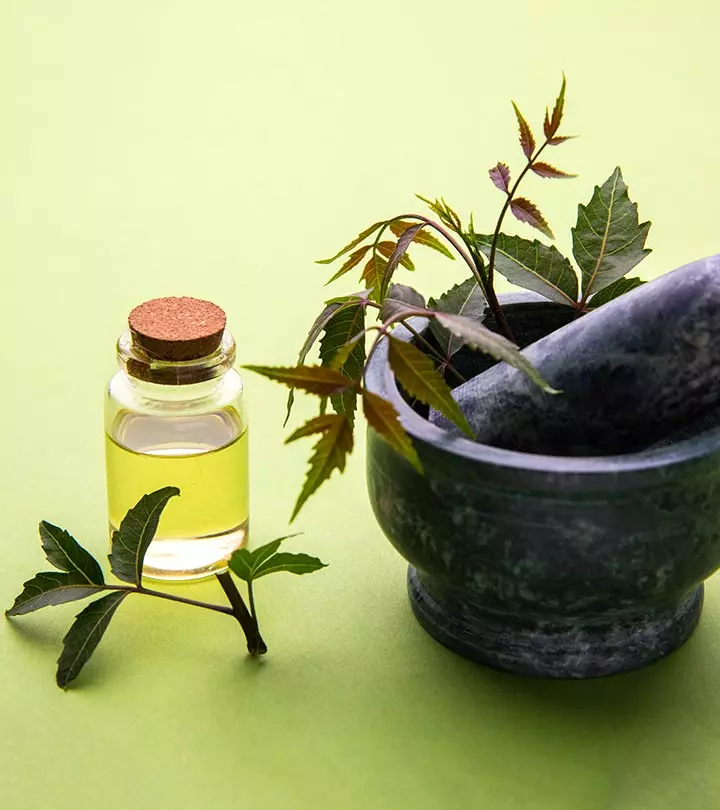
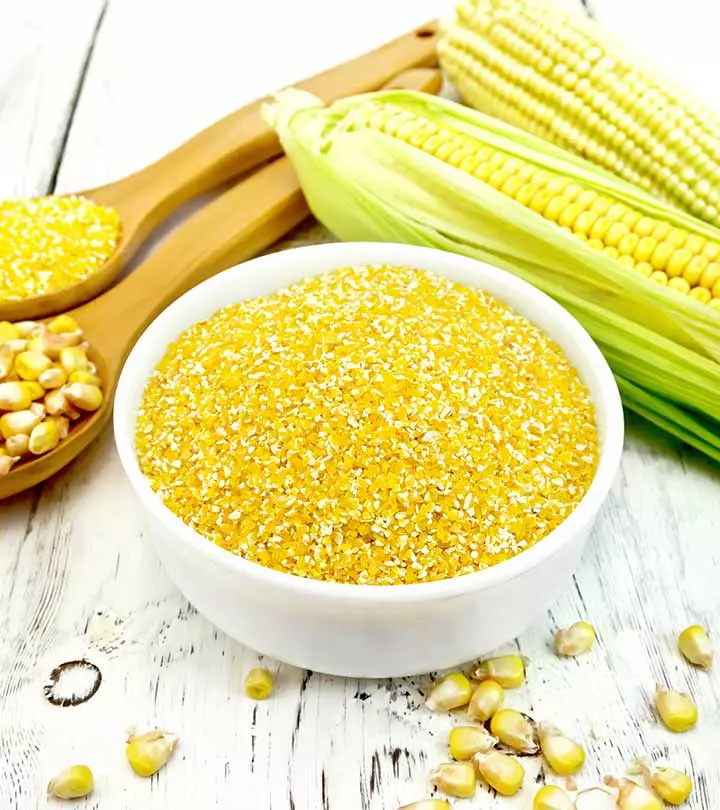
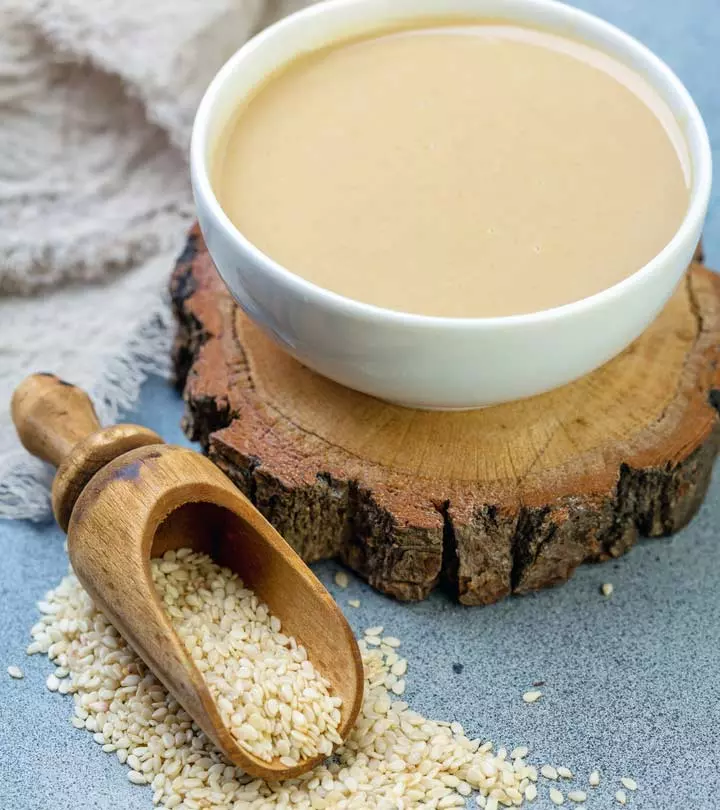
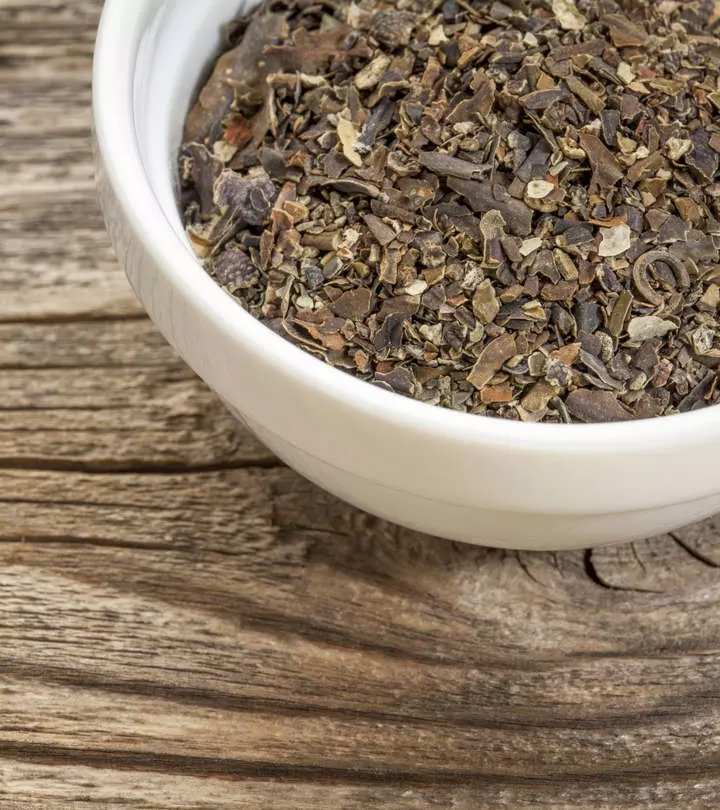
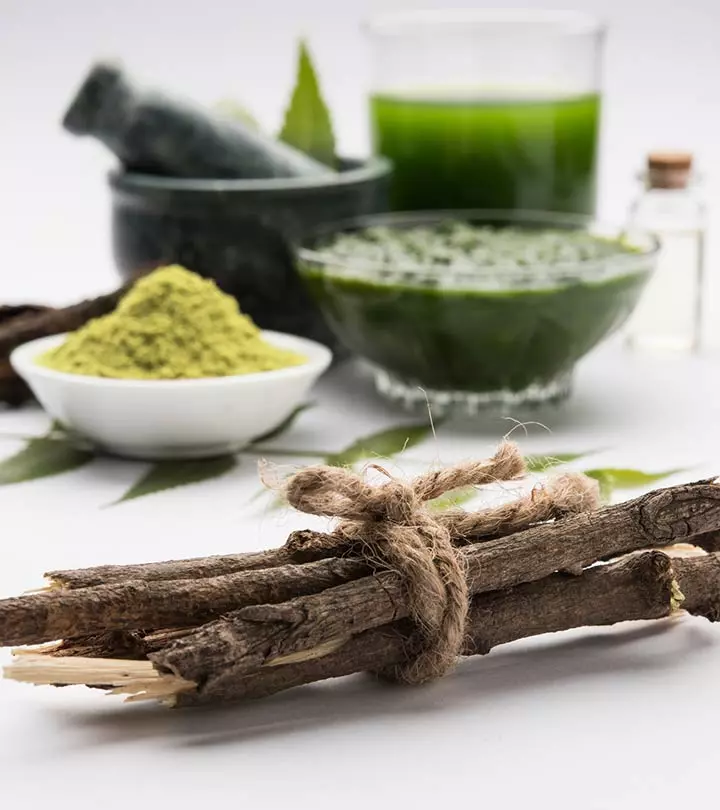
Community Experiences
Join the conversation and become a part of our empowering community! Share your stories, experiences, and insights to connect with other beauty, lifestyle, and health enthusiasts.